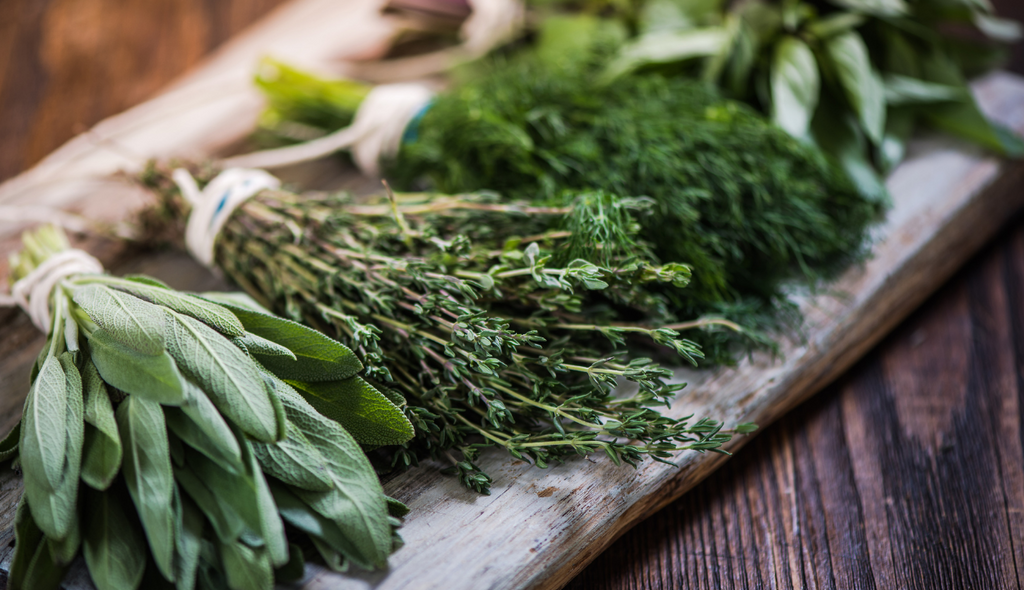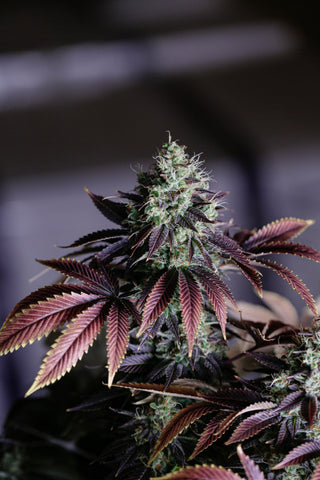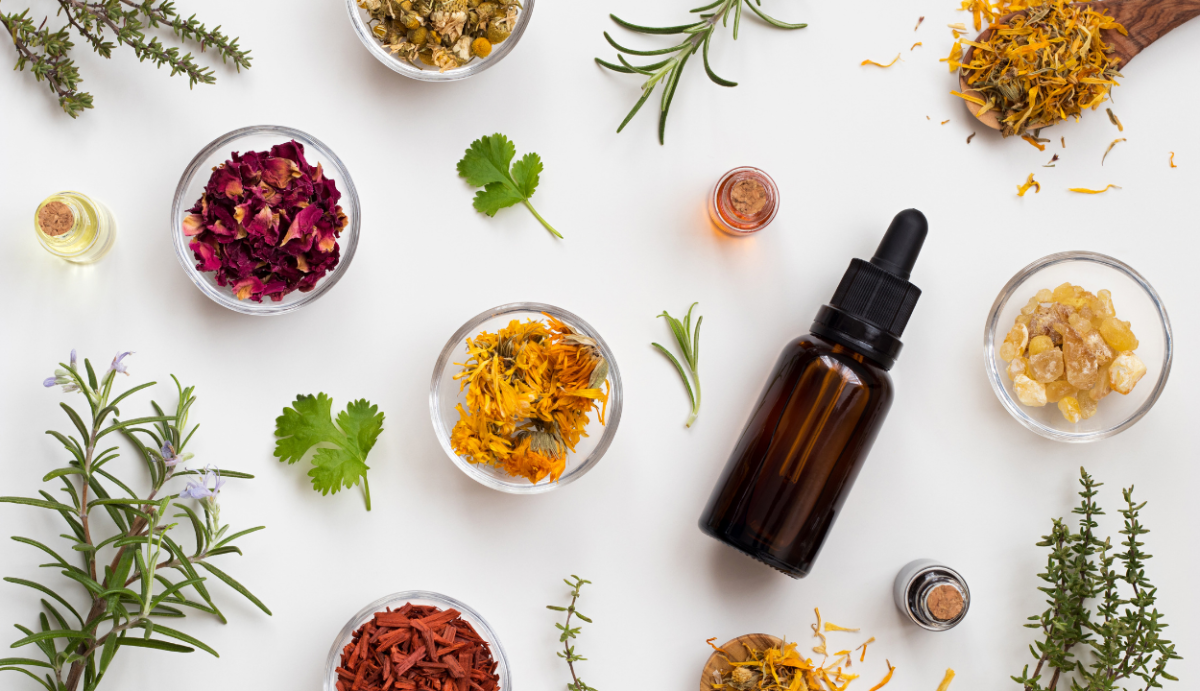Your Cart is Empty
FREE SHIPPING ON ALL ORDERS $75+
Herbs and spices—something you probably have a bounty of in your kitchen cabinets—may actually have a range of benefits for the body that expand past nutrition.
In some cases, herbal preparations have been found to have anti-cancer and immune-stimulating effects, which explains why people all over are finding a way to incorporate herbs for cancer alongside their cancer-management and prevention routines.
Because various herbal preparations have been studied extensively for decades, there’s a lot to cover. Let’s start with the basics:
To date, there’s no reliable evidence that herbs can be used on their own to treat or cure cancer, but they may still make a useful addition to your therapy routine.
While some herbs have been marked as having “anti-cancer potential,” others may help to manage the side effects associated with common cancer treatments, like nausea and vomiting.
Some herbs are specifically marked for anti-inflammatory benefits or other benefits that may help prevent cancer, which is especially important for people with a family history of cancer and related illnesses.
Let’s dive into the herbs for cancer that may deserve a spot in your wellness routine:
Before we cover what we know about herbs for cancer and their healing potential, we feel that it’s important to note that these substances have not been proven to cure cancer on their own and should not be used in place of traditional therapies or without a doctor’s guidance.
That said, the following herbal remedies are packed with more than just flavor—they may also pack an immune-boosting, anti-cancer punch. Here are the herbal remedies that made the list:
Perhaps the most popular health-supporting herb that’s always within reach is garlic, or rather allicin, a powerful compound that’s produced when garlic is chopped. Allicin is thought to have anti-inflammatory and antioxidant effects that may give it the power to protect heart-health, boost immune functions, and balance cholesterol.

Most significantly, researchers have evaluated garlic’s anti-cancer properties. One study evaluates the anti-cancer potential of a homemade garlic extract and concludes “that a homemade garlic extract has anti-cancer activities both in vitro and in vivo, and that the activity is stable for more than six months if stored in a freezer.”
Just incorporate raw garlic into daily meals. Use the “chop and stop” method, meaning you should cut garlic and allow it to sit for around ten minutes to allow allicin to form before using it. Toss it in a salad, dip, or sauce (after cooking) or just munch on it raw.
Cayenne peppers are full of capsaicin, a compound that’s well-known for its use in topicals designed to fight pain and inflammation in the muscles and joints. A lesser-known fact is that capsaicin is thought to have significant anti-cancer potential.
A 2016 study evaluated this potential. The study concluded that “Capsaicin exhibits strong anticancer activity through targeting multiple signaling pathways and cancer-associated genes in different tumor stages...In addition, capsaicin interacts with other cancer-preventive agents synergistically, providing the possibility for the potential use of capsaicin in cancer therapy with other chemotherapeutic agents.”
More evidence is needed, but this study and other similar studies have called for a deeper look at capsaicin as an anti-cancer remedy.
Cayenne pepper can be found in capsule-form, or you can simply use the ground spice to spice up your meals. You can also use fresh cayenne peppers if you like spicy foods, as they make a good addition to stir-fries, soups, salsa, and other flavor-packed snacks.
Turmeric, the yellow curry powder star, is packed with curcumin, a polyphenol that aids in “oxidative and inflammatory conditions, metabolic syndrome, arthritis, anxiety, and hyperlipidemia,” according to a 2017 review on its health effects.
That’s not all, either. A 2019 study found that timed-released turmeric may help combat cancer cells, specifically that it “successfully inhibits bone cancer cells while promoting growth of healthy bone cells.” We need more research to understand turmeric's full cancer-fighting abilities, but it is undoubtedly a superfood that deserves a spot in your regular diet and wellness routine.
Turmeric is a common household spice that can be used to add a savory punch to nearly any dish, like rice, meats, and veggies. It’s the main ingredient in curried dishes, and beverages containing turmeric (like golden milk) are also popular.
To increase absorption, consider mixing turmeric with a small dash of freshly cracked black pepper (piperine).
A 2016 study shows that astragalus-containing Traditional Chinese Medicine may help counter the side effects of certain chemotherapy agents such as cisplatin and carboplatin.
The study found that chemotherapy combined with astragalus-containing medicines was related to increased survival rates and increased tumor response rates. It also concluded that “Side effects—including anemia, neutropenia, thrombocytopenia, fatigue, poor appetite, nausea, and vomiting—were significantly more frequent with platinum-based chemotherapy alone than when platinum-based chemotherapy was combined with Astragalus-based tcm.”
On its own, astragalus provides powerful anti-inflammatory, anti-aging, and immune-boosting benefits that have made it a powerhouse at the center of Traditional Chinese Medicine for centuries.
Astragalus can be found in a powder-based form or in various supplements, but you should keep in mind that it is extremely powerful and may interact with other medications. Always check with your doctor before using herbal supplementation.

Oregano, an herb with powerful anti-inflammatory and antioxidant benefits, may also have potential as an anti-cancer substance. Original interest came from evidence that showed that populations following the Mediterranean diet, which contains ample amounts of oregano, were far less likely to experience colon cancer.
One 2018 study explored this hypothesis, noting that “Oregano essential oil (EO) exhibits anti-proliferative activity in stomach cancer” and that it “inhibited metastasis in vitro.”
Another 2019 study evaluated the effects of Oregano EO against different cancer cell lines, but found it to be significantly more effective against colon cancer cells. Both studies call for more research on the topic.
Most research on oregano’s anti-cancer potential centers around a potent oregano extract. Unfortunately, many essential oils on the market today may be unsafe to take by mouth. Still, you can find oregano extract in various herbal preparations or you can add fresh oregano to your meals.
Ginger as a nausea-remedy isn’t exactly a secret, but did you know it may be powerful enough to help chemotherapy-induced nausea, too?
One 2012 study calls it “a miracle against chemotherapy-induced vomiting.” Note that some patients experienced heart burn, and ginger should not be taken before or after surgery, by patients taking certain blood-thinning medications, or by those with a low platelet count because it promotes bleeding.
Ginger is very versatile and can be enjoyed on it’s own as a spicy snack, tossed into a stir-fry or sauce, used in powdered form, taken by capsule, or made into a sweet, spicy tea.

Among the tried and true herbs for cancer is cannabis, and lately it’s non-psychoactive hemp variations. While cannabinoids like CBD and Delta-8 don’t exactly classify as “herbs,” they come from a plant that’s been used in medicinal herbal preparations since basically the beginning of medicine. In fact, the earliest records we have of cannabis’ medicinal use dates back to 2737 BC.
Research related to the use of cannabis for cancer dates back decades, and cancer is a qualifying condition for medical cannabis use in areas where it’s legal.
Still, various legal parameters have put cannabis out of reach for many cancer patients across the country. That is, until the legalization of a specific cannabis classifications—industrial hemp. Because hemp is legal across the country, people can easily access hemp compounds like CBD and Delta-8-THC.
CBD, or cannabidiol, has been repeatedly researched for it’s anti-cancer potential. While more evidence is needed, researchers are especially interested in CBD because it has no psychoactive effects.
One study evaluating it’s anticancer potential states that “there is extensive preclinical research indicating CBD as an efficacious anti-cancer agent either alone or in conjunction with other cannabinoids, chemotherapies, and radiation therapy,” and calls for systematic clinical trials in the direction of formulating a clinical oncology drug with CBD.
Read about CBD to learn more about it’s potential benefits.
Delta-8 is another important cannabinoid that’s legal in most states across the nation. Unlike CBD, Delta-8-THC does have moderate psychoactive effects and functions more similarly to Delta-9-THC, the main component in medical cannabis that’s commonly used for cancer management.
One study found that Delta-8 has potentially potent anti-nausea effects for those undergoing cancer therapies, potentially with fewer side effects than traditional THC therapeutics.
In fact, the study was conducted on pediatric cancer patients and found that Delta-8 was not only effective at quelling chemotherapy induced nausea, but was also tolerated at even larger (and therefore more effective) doses than Delta-9 without the same drawbacks, like paranoia.
Read about Delta-8’s potential benefits to learn more.
Both Delta-8 and CBD are found in hemp, a legal cannabis product. You can find Delta-8 gummies, vapes, tinctures, and more when you shop for Delta-8 online. You can also find CBD edibles, softgels, and tinctures, which all have different dosing benefits.
Herbs may seem harmless. After all, we consume them nearly every time we eat a home-cooked meal or enjoy a cup of tea. It’s important to note that some herbal preparations could potentially interfere with some cancer treatments, so it’s important to proceed with caution (and your doctor’s guidance) when using herbs for cancer.
Always talk to your doctor before incorporating new herbal remedies into your wellness routine, especially if you are already taking daily medications or are undergoing life-saving therapies. With proper guidance and caution, various herbal remedies may be a health-boosting addition to your wellness routine.
Yes, some herbs may be used in conjunction with traditional cancer treatments, but it is important to consult a healthcare provider first.
No, herbs should not be used as a replacement for traditional cancer treatments. They may be used in addition to traditional treatments, but only under the supervision of a healthcare provider.
Yes, it is necessary to consult a doctor before using herbs for cancer prevention or symptom management. This is because certain herbs can interact with cancer treatments or have side effects, and a doctor can advise on the safe and effective use of herbs in an individual's specific circumstances.
Comments will be approved before showing up.



